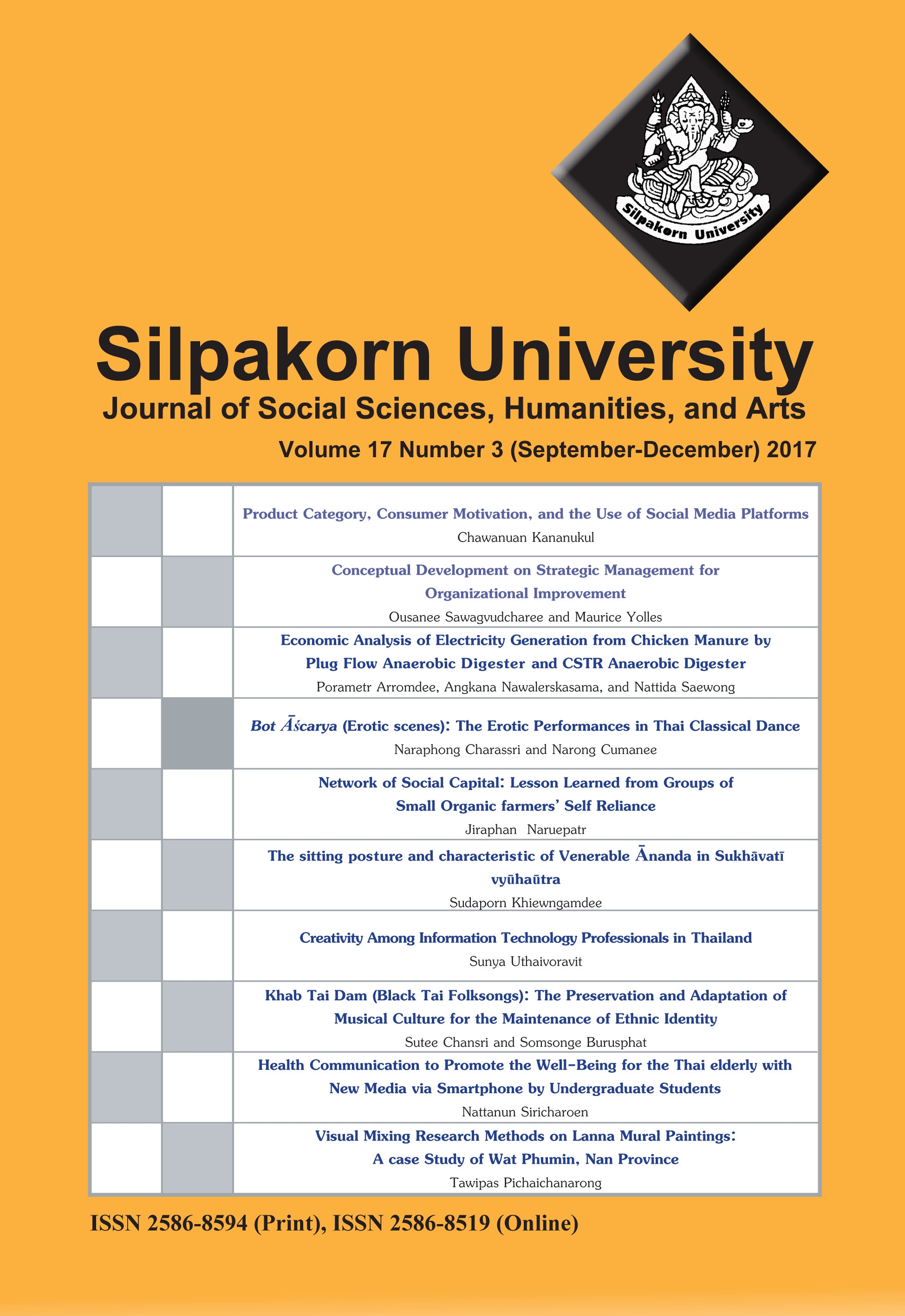Conceptual Development on Strategic Management for Organizational Improvement
Main Article Content
Abstract
The objective of this paper is to present a theoretical model for strategic business management. There are three basic models that deal with the notion of business strategy: an Input/ Output model, a resources-based model, and an agency model of the organization. The models are a result of the strategic management paradigm. Knowledge management (KM) was then developed to significantly define knowledge as a valuable strategic resource for businesses. The agency model indicates more promise having the potential to incorporate both of the other models, but current approaches are passive and do not embrace complexity. The collective agency, a new form of this model that embraces these attributes, will be presented.
Downloads
Article Details
All rights reserved. Apart from citations for the purposes of research, private study, or criticism and review,no part of this publication may be reproduced, stored or transmitted in any other form without prior written permission by the publisher.
References
Bandura, A. (1991) Human agency: The rhetoric and the reality. American Psychologist, 46, 157-162. Bandura, A. (1991). Social cognitive theory of self-regulation. Organizational Behavior and Human Decision Process, 50, 248-287.
Bandura, A. (1997). Personal efficacy in psychobiologic functioning. In Caprara, G. V. (Ed.), Bandura: A leader in psychology (pp. 43-66). Millan, Italy: Franco Angeli.
Bandura, A. (1997) Self - efficacy and health behaviour. In Baum, A. Newman, S., Wienman, J., West, R. & McManus, C. (Eds), Cambridge handbook of psychology, health and medicine, pp. 160-162. Cambridge: Cambridge University Press.
Bandura, A. (2006) Going global with social cognitive theory: From prospect to paydirt. In Donaldson, S. I. Berger, D. E. & Pezdek, K. (Eds.). The rise of applied psychology: New frontiers and rewarding careers, pp. 53-70. Mahwah, NJ: Lawrence Erlbaum.
Dobson, P., Starkey, K., Richards. J. (2004). Strategic Management: Issues and Cases. London: Blackwell Publishing Ltd, .
Freeman, R. E., McVea, J. (2006). A Stakeholder Approach to Strategic Management, in Hitt, M. A., Freeman, R. E., Harrison, J. S., (Eds), The Blackwell Handbook of Strategic Management, pp. 204-224. UK: Blackwell Publishing.
Jones, T., Wicks, A. (1999). Convergent stakeholder theory. Academy of Management Review 24(2), 206-221.
Kets de Vries, M. F. R. (1991) Organizations on the Couch: Clinical Perspectives on Organizational Behaviour and Change, NY: Jossey-Bass Inc (a Wiley publication).
Lado, A. A., Boyd, N. & Wright, P. (1992) A competency-based model of sustainable competitive advantage: toward a conceptual integration, Journal of Management, 18, 77-91. Retrieved on Feb, 2006, from https://www.findarticles.com/p/articles/mi_m4256/is_n1_v18/ ai_12289737
Labatkin, M. H., Lane, P. J., Schulze, W. S. (2006) A Strategic Management Model of Agency Relationships in Firm Governance, in Hitt, M. A., Freeman, R. E., Harrison, J. S., (Eds), The Blackwell Handbook of Strategic Management, pp. 246-279. UK: Blackwell Publishing.
Mahoney, J. T. & Pandian, J. R. (1992) The resource-based view within the conversation of strategic management, Strategic Management Journal, 13, 363-380.
Marshall, S. P. (1995) Schemes in Problem Solving. Cambridge: Cambridge University Press.
Maturana, H. R., Varela, F. J. (1987) The Tree of Knowledge. London: Shambhala.
Nutt, C. P. (2006) Strategic Decision-Making, in Hitt, M. A., Freeman, R. E., Harrison, J. S., (Eds), The Blackwell Handbook of Strategic Management, pp. 44-81. UK: Blackwell Publishing.
Peters, T. (1987) Thriving on Chaos. New York: Alfred A. Knopf, Inc.
Piaget, J. (1950) The psychology of intelligence. New York: Harcourt, Brace.
Porter, M. (1985) Competitive advantage. New York: The Free Press
Priem, R. L. & Butler, J. E. (2001) Is the resource-based ‘view’ a useful perspective for strategic management research? Academy of Management Review, 26(1), 22-40.
Schoenfeld, A. H. (1986) On having and using geometric knowledge. In Hiebert, J. (Ed.), Conceptual and procedural knowledge: The case of mathematics. London, UK: Lawrence Erlbaum Associates.
Schutz, A., Luckmann, T. (1974) The Structures of the Lifeworld. Heinamann, London.
Schwaninger, M. (2001) Intelligent Organizations, An Integrative Framework, Sys. Res., 18, pp. 137-158.
Wade, M. & Hulland, J. (2004) The Resource-Based View and information Systems Research: Review, Extension, and Suggestions for Future Research. MIS Quarterly 28(1), 107-142.
Wollheim, R. (1999) On The Emotions. New Haven and London: Yale University Press.
Yolles, M. I. (2003) Viable Systems Theory, Anticipation, and Logical Levels of Management, International Conference on Creativity and Complexity, London School of Economics, 16th - 18th September, Retrieved on Feb, 2006, from https://www.psych.lse.ac.uk/complexity/Conference/MauriceYollesPaper.pdf
Yolles, M. I. (2009) A Social Psychological basis of Corruption and Sociopathology, Organizational Change Management 22(6), 691-731.
Yolles, M. I., Fink, G. (2011) Agencies, Normative Personalities, and the Viable Systems Model, Journal Organisational Transformation and Social Change 8(1), 83-116


